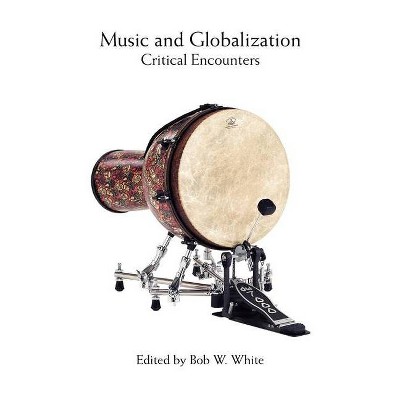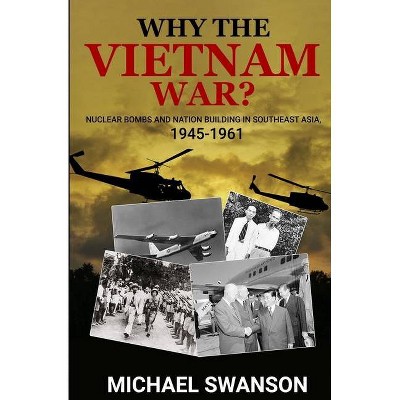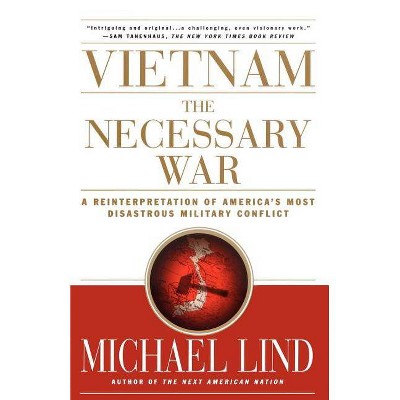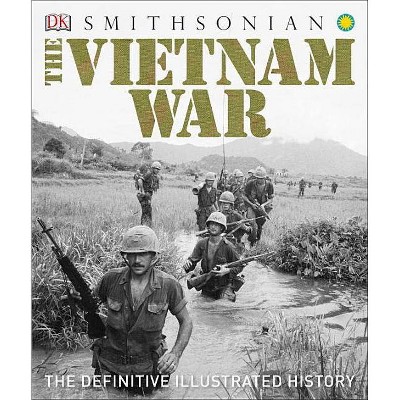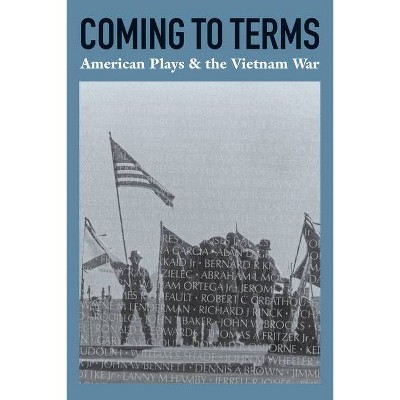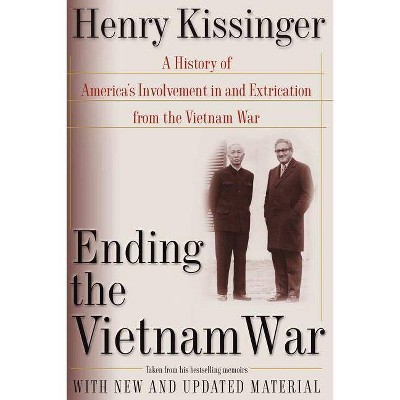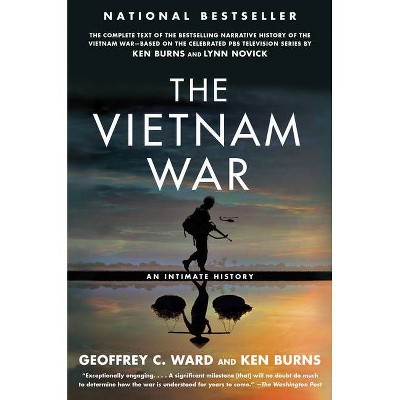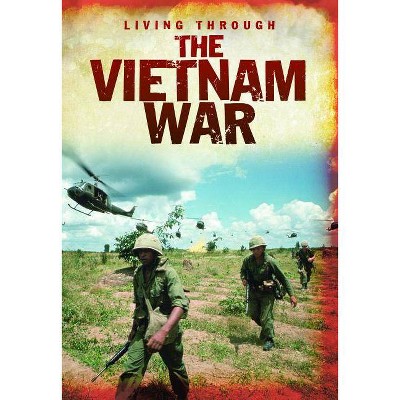The American War in Contemporary Vietnam - (Tracking Globalization) by Christina Schwenkel (Paperback)
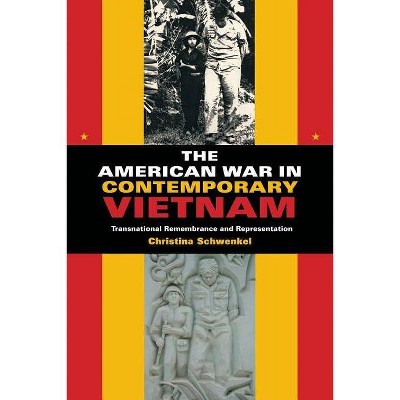
Similar Products
Products of same category from the store
AllProduct info
<p/><br></br><p><b> About the Book </b></p></br></br>In these transnational spaces, American and Vietnamese memories of the war intersect in ways profoundly shaped by global economic liberalization and the return of American citizens as tourists, pilgrims, and philanthropists.<p/><br></br><p><b> Book Synopsis </b></p></br></br><p>Christina Schwenkel's absorbing study explores how the American War is remembered and commemorated in Vietnam today--in official and unofficial histories and in everyday life. Schwenkel analyzes visual representations found in monuments and martyrs' cemeteries, museums, photography and art exhibits, battlefield tours, and related sites of trauma tourism. In these transnational spaces, American and Vietnamese memories of the war intersect in ways profoundly shaped by global economic liberalization and the return of American citizens as tourists, pilgrims, and philanthropists.</p><p/><br></br><p><b> Review Quotes </b></p></br></br><br><p>. . . a compelling and rare ethnographic portrait of a historically determined out-of-the-way place revealing postmodern conditions of globalizing capital undergoing locally situated revisions--in this case, toward a 'market economy with social orientation.' Fascinating and a must for all readers interested in the present and the past as it is constituted in memory. . . . Essential.May 2010</p>-- "Choice"<br><br><p>[This book] makes a compelling, significant, and long-overdue contribution to a growing body of recent scholarship that is interrogating the Vietnam War--or American War--in increasingly innovative and complicated ways. . . . It is essential reading, and it is difficult to imagine teaching a course on the legacy of U.S. involvement in Indochina without including it.February, 2011</p>-- "H-1960s"<br><br><p>Anthropologist Schwenkel (Univ. of California, Riverside) addresses perhaps one of the most compelling transnational events in history. For one nation, the event was crucial as a foundation from which to challenge the great meta-narratives of modern times; from the perspective of another nation, it validated a version of modernity thickly embedded in local experiences of colonialism. Whether it is the 'Vietnam' War or the 'American' War, Schwenkel illustrates the continuing aftereffects of these histories as living memories in the ethnographic present of Vietnam. Fieldwork takes place in Hanoi and Ho Chi Minh City as well as Hue and Vinh cities. This multi-sited ethnography includes experiences of mobility back and forth between Vietnam and the US that generates this transnational ethnography of knowledge production and memory-making undergoing globalizing conditions. The final result is a compelling and rare ethnographic portrait of a historically determined out-of-the-way place revealing postmodern conditions of globalizing capital undergoing locally situated revisions--in this case, toward a 'market economy with social orientation.' Fascinating and a must for all readers interested in the present and the past as it is constituted in memory. Summing Up: Essential. All levels/libraries. -- ChoiceMay 2010</p>--S. Ferzacca "University of Lethbridge"<br><br><p>In the depth of its research, the originality of its arguments, and the lucidity of its prose, Christina Schwenkel's engaging new book makes an outstanding contribution to the recent literature on transnational remembrance, whether in Vietnam or elsewhere. . . . [T]his is a work that deserves a wide readership within and outside of the academy.</p>-- "H-Diplo"<br><br><p>Scholars of monuments, of museums, of photography and remembrance, and in other fields will find much of value here, including scholars and fields far removed from the Vietnamese context.71.4 Nov. 2012</p>-- "Journal of Asian Studies"<br><br><p>Schwenkel's rich empirical data offer a Vietnamese present that is as much haunted by the future as the past. . . . [She] has provided a compelling portrait of contemporary Vietnam and an important tool to interrogate the forces that shape transnational memory projects, conditioning contests over what counts as, and who can speak, the truth. December 2010</p>-- "South East Asia Research"<br><br><p>The American War in Contemporary Vietnam is essential reading for anyone teaching or wanting to understand Vietnam today and would be useful in teaching seminars or upper-level courses on Vietnam, Asia, memory, and history, as well as discussions of ethnographic methodology</p>-- "American Ethnologist"<br><br><p>This book provides a great healing and revealing experience for any survivor or student of the Vietnam era. Winter 2011</p>-- "On Point"<br><br><p>This is a lucid, original, and extremely well-written book, further enriched by its many arresting illustrations of Vietnam's remarkable memorializing aesthetics. What Schwenkel has achieved is both a sophisticated addition to our rapidly growing ethnographic literature on 'late-socialist' Vietnam and a major contribution to the anthropology of memory, globalization, and postcolonial cultural power relations.#16 2010</p>--Susan Bayly "University of Cambridge"<br><br><p>With its wide-ranging fieldwork and deft integration of insights from the literature on the politics and dynamics of memory, The American War in Contemporary Vietnam will be an important source for scholars of memory, war, tourism, and visual representation. It will also spark classroom discussion of how contemporary economic and political circumstances shape the lessons we take from the past. Vol. 112, No. 4, December 2010</p>-- "American Anthropologist"<br><p/><br></br><p><b> About the Author </b></p></br></br><p>Christina Schwenkel is Assistant Professor of Anthropology at the University of California, Riverside.</p>
Price History
Price Archive shows prices from various stores, lets you see history and find the cheapest. There is no actual sale on the website. For all support, inquiry and suggestion messages communication@pricearchive.us
